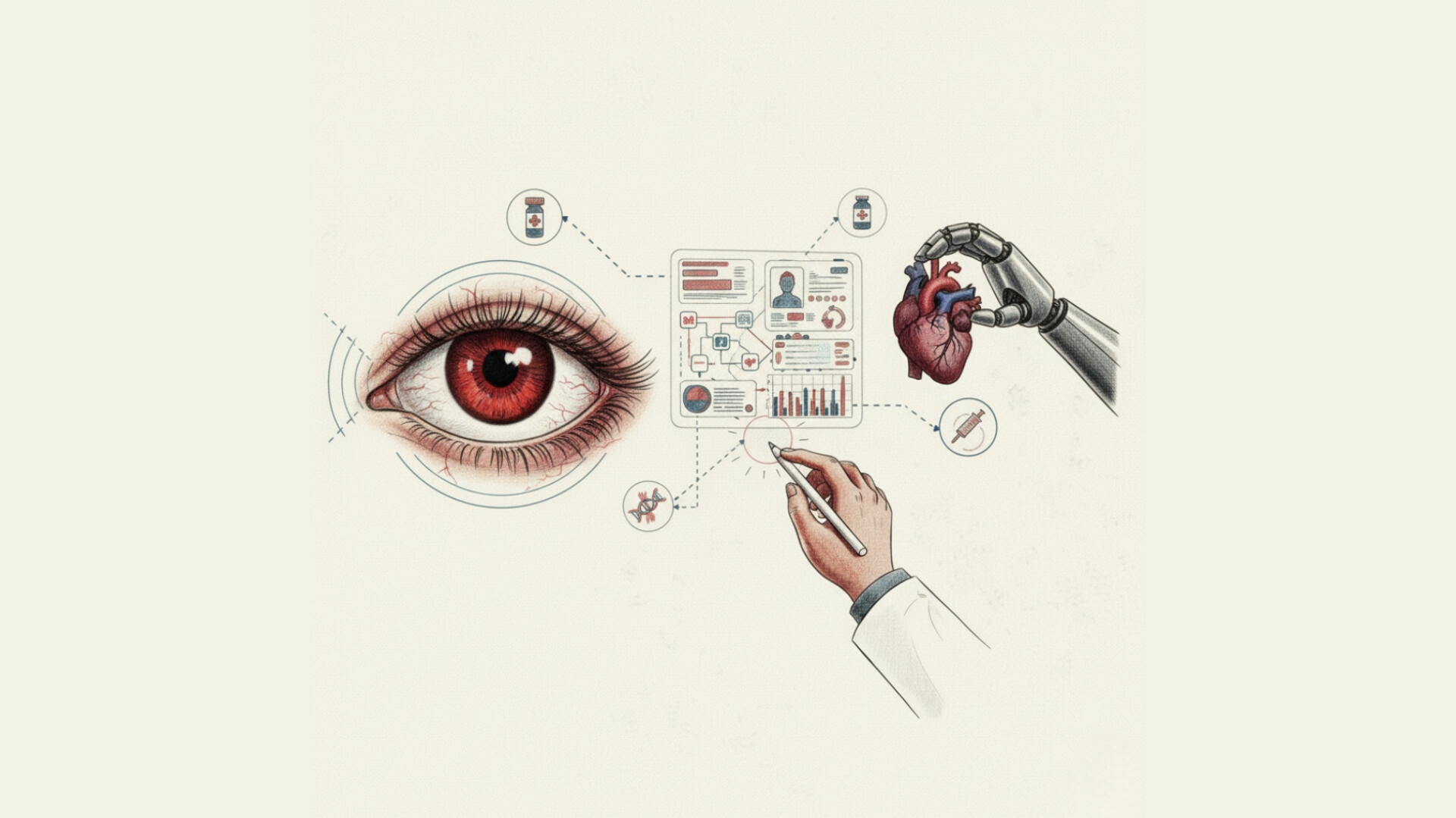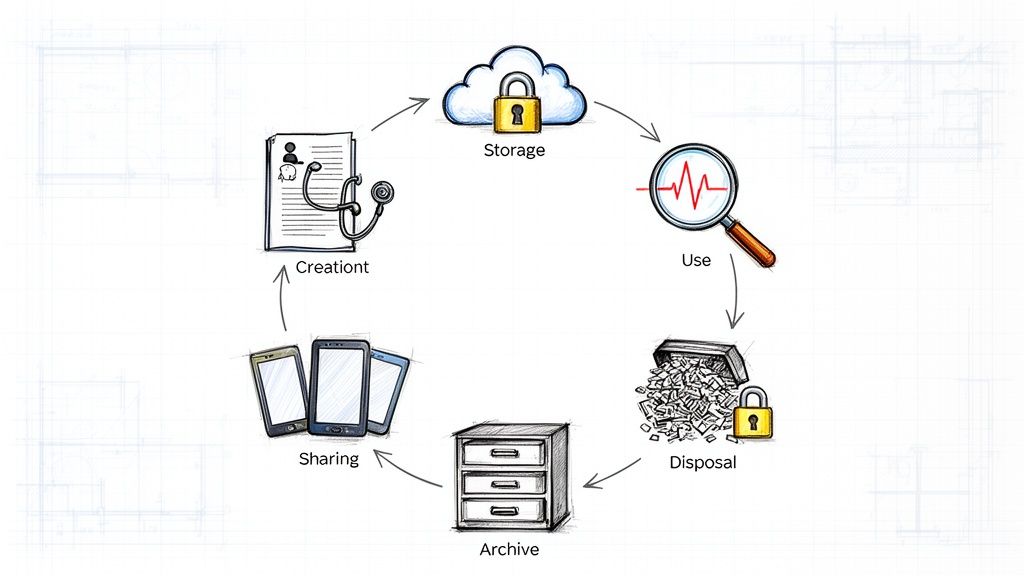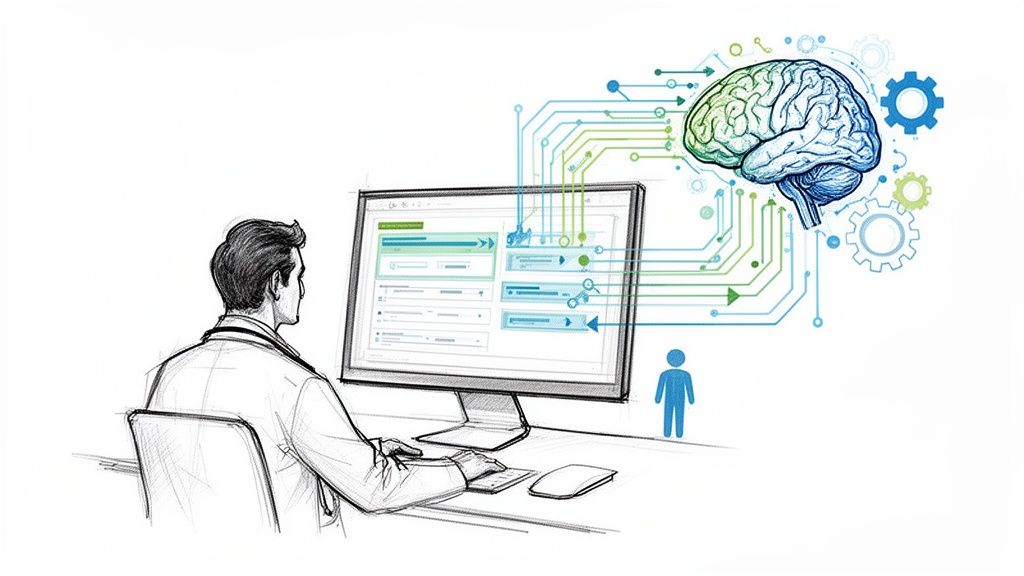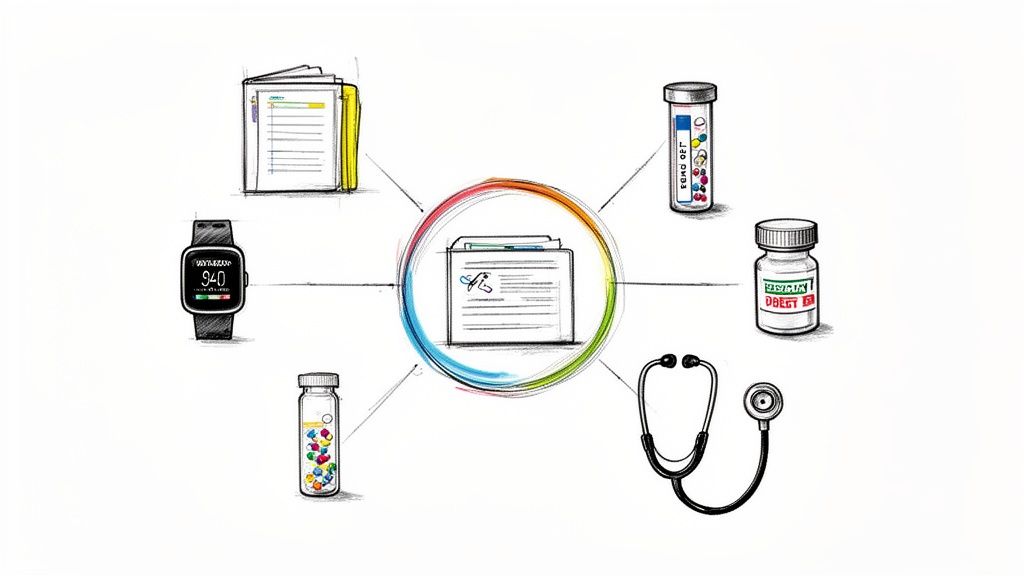The Role of AI in Clinical Decision Support Systems (CDSS)
Learn how AI-powered Clinical Decision Support Systems enhance healthcare automation, improve diagnostic accuracy, and elevate patient outcomes for smarter, data-driven care.

Artificial Intelligence (AI) has become one of the most transformative forces in modern healthcare. From diagnostics to patient engagement, AI has proven to be reshaping how clinicians make critical decisions. Among the most promising applications of AI in healthcare are Clinical Decision Support Systems (CDSS), which combine medical data, predictive algorithms, and evidence-based guidelines to enhance clinical judgment and treatment precision.
Today’s healthcare ecosystem generates enormous volumes of data from electronic health records (EHRs), imaging systems, genomics, and wearable devices. Clinicians face the challenge of synthesizing this information quickly and accurately to make life-saving decisions. AI-driven Clinical Decision Support Systems provide the much-needed intelligence layer to assist doctors in diagnosis, risk assessment, and treatment planning, helping to minimize human error and improve patient outcomes.
According to a 2023 report by Grand View Research, the global Clinical Decision Support Systems market size was valued at over USD 5 billion in 2022, with expectations to grow at a compound annual rate exceeding 9% through 2030. This rapid adoption reflects the rising demand for precision medicine, healthcare automation, and AI integration in clinical workflows.
The Evolution of Clinical Decision Support Systems
Traditional CDSS tools were rule-based systems that relied on predefined medical guidelines and diagnostic criteria. While useful, these early systems were limited in adaptability and often produced alert fatigue among clinicians. With the integration of AI Solutions, CDSS platforms can now process unstructured medical data, learn from historical patterns, and offer personalized insights for patients.
Machine learning models, for instance, can analyze thousands of patient records to predict disease risk or recommend drug interactions. Natural language processing (NLP) enables systems to interpret clinical notes and extract relevant data for analysis. This evolution has turned clinical decision software from static databases into dynamic, context-aware systems capable of continuous learning.
AI in Healthcare: Transforming Diagnosis and Decision-Making
AI is already proving invaluable in diagnostic imaging, pathology, and genomics. In radiology, for example, AI systems can identify anomalies in X-rays or MRIs with accuracy comparable to experienced specialists. When integrated into Clinical Decision Support Systems, these capabilities empower clinicians to make faster, evidence-based decisions.
For instance, AI-powered CDSS tools can analyze patient history, lab reports, and genetic data to recommend the most effective treatment options. They can even detect subtle patterns that may indicate early signs of diseases like cancer or cardiovascular disorders - conditions that require timely intervention. This makes AI in healthcare a game-changer for improving diagnostic accuracy and reducing costs associated with misdiagnoses.
Key AI Use Cases in Clinical Decision Support
Predictive Analytics for Disease Risk
Machine learning algorithms can identify patients who are at higher risk for chronic diseases such as diabetes, heart failure, or hypertension. By analysing patient history, laboratory results, and behavioural data, AI models detect subtle warning signs long before symptoms manifest. This proactive approach enables healthcare professionals to intervene early with lifestyle changes, targeted screenings, or preventive medication. As a result, predictive analytics not only improves patient outcomes but also helps healthcare systems reduce hospital readmissions and overall treatment costs.
Drug Interaction and Prescription Guidance
AI-powered CDSS tools can cross-reference patient medications in real time to detect possible drug interactions and alert clinicians before prescriptions are finalised. These systems evaluate dosage levels, treatment duration, and patient-specific conditions to ensure that medications are both safe and effective. In complex cases involving multiple drugs, such automated guidance prevents harmful side effects and supports compliance with clinical best practices. This functionality is particularly valuable for elderly patients or those with chronic conditions who are often prescribed multiple medications simultaneously.
Automated Image Analysis
Deep learning models have revolutionised the interpretation of medical images, assisting radiologists and pathologists with enhanced speed and precision. AI can examine thousands of images, from X-rays to CT scans, to identify abnormalities that may go unnoticed by the human eye. By learning from vast datasets, these models continuously improve their diagnostic accuracy and reduce the likelihood of false negatives or positives. Integrating automated image analysis into CDSS workflows ensures that clinicians receive faster, data-backed insights, enabling quicker diagnosis and treatment decisions.
Personalized Treatment Plans
AI systems in Clinical Decision Support Systems enable truly personalized healthcare by analysing an individual’s medical history, genetic makeup, and lifestyle factors. They can recommend treatment options best suited to a patient’s unique physiological and behavioural profile rather than relying solely on generalised medical guidelines. This tailored approach increases the likelihood of successful treatment outcomes and patient satisfaction. As the system learns from each case, it refines its recommendations, making clinical care more adaptive and effective over time.
Clinical Workflow Optimization
Integrating AI-driven recommendations into hospital operations significantly enhances clinical efficiency and accuracy. CDSS platforms can automate routine administrative tasks such as documentation, appointment scheduling, and coding, allowing medical staff to focus more on patient care. Real-time alerts and intelligent prioritisation also help clinicians manage caseloads more effectively, reducing delays and improving communication across departments. In the long run, workflow optimisation powered by AI contributes to cost savings, reduced burnout, and a smoother, more coordinated care delivery system.
Building an Effective AI Strategy for CDSS
Developing a robust AI strategy is essential for healthcare organizations aiming to leverage CDSS effectively. Success depends not only on technology adoption but also on change management, governance, and clinical integration.
Healthcare providers must begin by identifying the most critical AI use cases aligned with their goals. Collaborating with an experienced AI implementation partner helps in evaluating data readiness, designing scalable architecture, and ensuring compliance with healthcare regulations like HIPAA.
Moreover, hospitals should invest in clinician training and interdisciplinary collaboration to ensure seamless human-AI synergy. The ultimate goal is not to replace clinicians but to augment their capabilities through intelligent systems.
Challenges in AI-Driven Clinical Decision Systems
Despite its promise, the integration of AI into CDSS comes with challenges. Data quality, algorithmic bias, and interoperability remain major barriers. Healthcare data is often siloed across departments, making it difficult for AI models to access comprehensive datasets. In addition, algorithms trained on limited demographic data may produce biased predictions, leading to disparities in care.
To address these issues, healthcare organizations must establish robust data governance frameworks and implement explainable AI systems that allow clinicians to understand the reasoning behind each recommendation. Building trust between clinicians and AI tools is key to successful adoption.
The Future of Clinical Decision Software
The next generation of clinical decision software will likely feature deeper integration with EHR systems, cloud-based deployment, and adaptive learning capabilities. These systems will not only guide clinical decisions but also evolve continuously through real-world feedback.
As healthcare automation advances, AI will help institutions optimize operational efficiency, reduce costs, and deliver more personalized care. Ultimately, CDSS supported by AI will serve as the backbone of precision medicine, where every decision is informed by data, not assumptions.
Conclusion
The fusion of Artificial Intelligence and Clinical Decision Support Systems represents one of the most impactful innovations in modern healthcare. By enabling data-driven decision-making, improving diagnostic accuracy, and optimizing treatment workflows, AI ensures that clinicians can deliver safer, faster, and more effective care.
For healthcare providers, the time to invest in AI Solutions and strategic partnerships is now. An experienced AI implementation partner can help design scalable, compliant, and impactful systems that align with your organization’s needs.
Ready to transform your healthcare practice with AI-driven CDSS? Talk to us today to explore the right solutions for your business.
FAQs
1. What are Clinical Decision Support Systems (CDSS)?
Clinical Decision Support Systems are computer-based tools that help healthcare professionals make evidence-based clinical decisions by analyzing medical data, patient records, and guidelines.
2. How does AI improve CDSS?
AI enables CDSS to process vast datasets, learn from outcomes, and deliver personalized insights that enhance diagnostic accuracy and treatment planning.
3. What are the common AI use cases in healthcare?
AI use cases include predictive analytics for disease risk, drug interaction monitoring, automated image analysis, and personalized treatment recommendations.
4. Why do healthcare organizations need an AI strategy consulting partner?
An AI strategy consulting partner helps organizations assess readiness, design scalable systems, and ensure successful integration of AI technologies into healthcare workflows.
5. What challenges affect AI implementation in CDSS?
Key challenges include data fragmentation, algorithmic bias, regulatory compliance, and lack of clinician trust in AI-driven recommendations.



